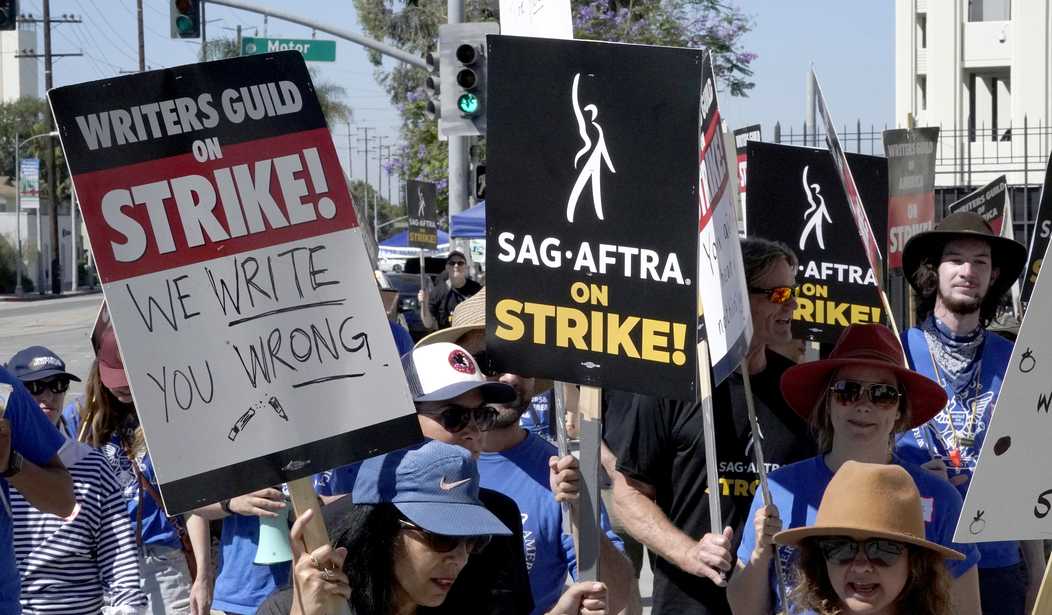For the second year in a row, the number of LGBT characters on television is decreasing.
This comes from a report from GLAAD, which tracks LGBT representation in media. According to their findings, since their inaugural count in 1996, LGBT representation has grown over 1,276 percent, but over the last two years that number has decreased:
- 8.6% of series regulars across primetime scripted broadcast programming were LGBTQ.
- This is a decrease of 31 characters and 2% from previous year.
- GLAAD counted 49 LGBTQ series regulars and 28 LGBTQ recurring characters on primetime scripted cable, for a total of 77 LGBTQ characters.
- This is a decrease of 62 characters from the previous study.
- GLAAD counted 208 LGBTQ series regular characters and 119 recurring LGBTQ characters on streaming scripted original programming for a total of 327 LGBTQ characters.
- This is a decrease of 29 characters from the 2022-23 study.
Does this mean that the entertainment industry is learning its lesson and that they should stop shoving these characters in our faces?
I wouldn't say that's the whole story.
It should be remembered that many productions were halted or outright canceled during the recent Hollywood strikes, which GLAAD brings up:
It is worth noting that several LGBTQ-inclusive series were delayed due to production shifts caused by the slow response of AMPTP leaders to SAG-AFTRA and WGA memberships striking for fair wages and protections in 2023. Those series, including The Last of Us, The Umbrella Academy, Yellowjackets, Euphoria, Harlem, and more, are currently set to return in future editions of this study.
The strikes did indeed have a lot to do with the decrease in productions at a time when DEI in entertainment was at its height, leading to a loss of LGBT characters. This was even a huge complaint by the SAG-AFTRA union in September, saying the strike was preventing them from injecting more LGBT stories and characters into shows:
Crabtree-Ireland explained, “The AMPTP companies are complicit in this regressive push if they continue preventing artists from getting back to work and making their worldview-changing stories. Everyone deserves to grow up seeing their identity authentically represented in film and media.”
He then declared, “The companies must come back to the negotiating table, make a fair deal, get writers and performers back to work, and help all of us use the profound power of the medium — along with empowering LGBTQ+ representation — to build a better, more welcoming future for generations to come.”
It's safe to say that Hollywood hasn't learned much and that number will increase next year...for now.
One thing that needs to be understood is that most people don't actually care about seeing LGBT people on screen. What they care about is having these characters and plotlines infect the story for no other reason than to have them on screen for box-checking reasons. Gay and lesbian people who fit into the plotline and have a purpose other than being gay aren't bad characters. Lloyd Lee from "Entourage" comes to mind, as does Willow Rosenberg from "Buffy the Vampire Slayer."
But in this age of forced representation, LGBT characters are often shoehorned in, even when it doesn't make sense for them to be there. This has many audience-goers tuning out of corporate network television and being more choosy about what they do watch on streaming platforms.
While I expect LGBT characters and plotlines to only grow, I expect audience numbers overall to slowly drain away as independent creators take to new networks. Moreover, as AI becomes more powerful, you'll find less and less reliance on studios. Creators can put together something right from their computer with a few prompts.
(READ: The End Is Nigh for Hollywood)
Independent creators will be much less concerned with looking good and checking those useless boxes, focusing instead on story and character development. Either way, the time where LGBT issues are the focus of entertainment will come to an end. It's only a matter of time, and that time is coming soon.














